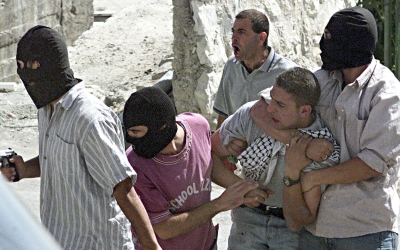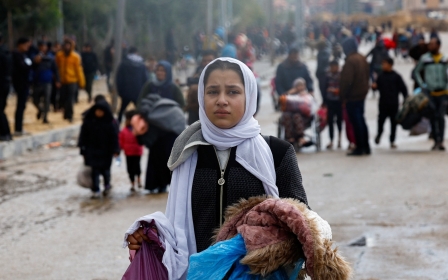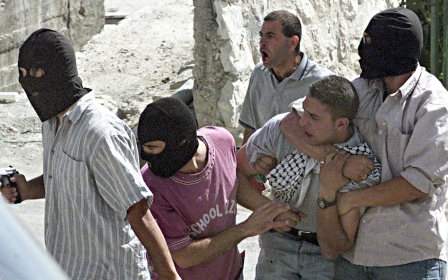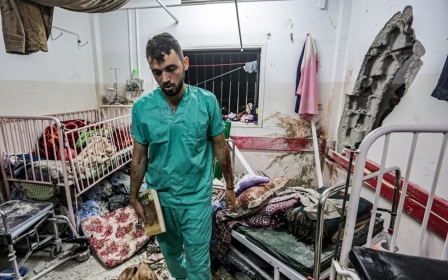War on Gaza: Hamas studying proposal for six-week pause but sees no deal without Israeli withdrawal
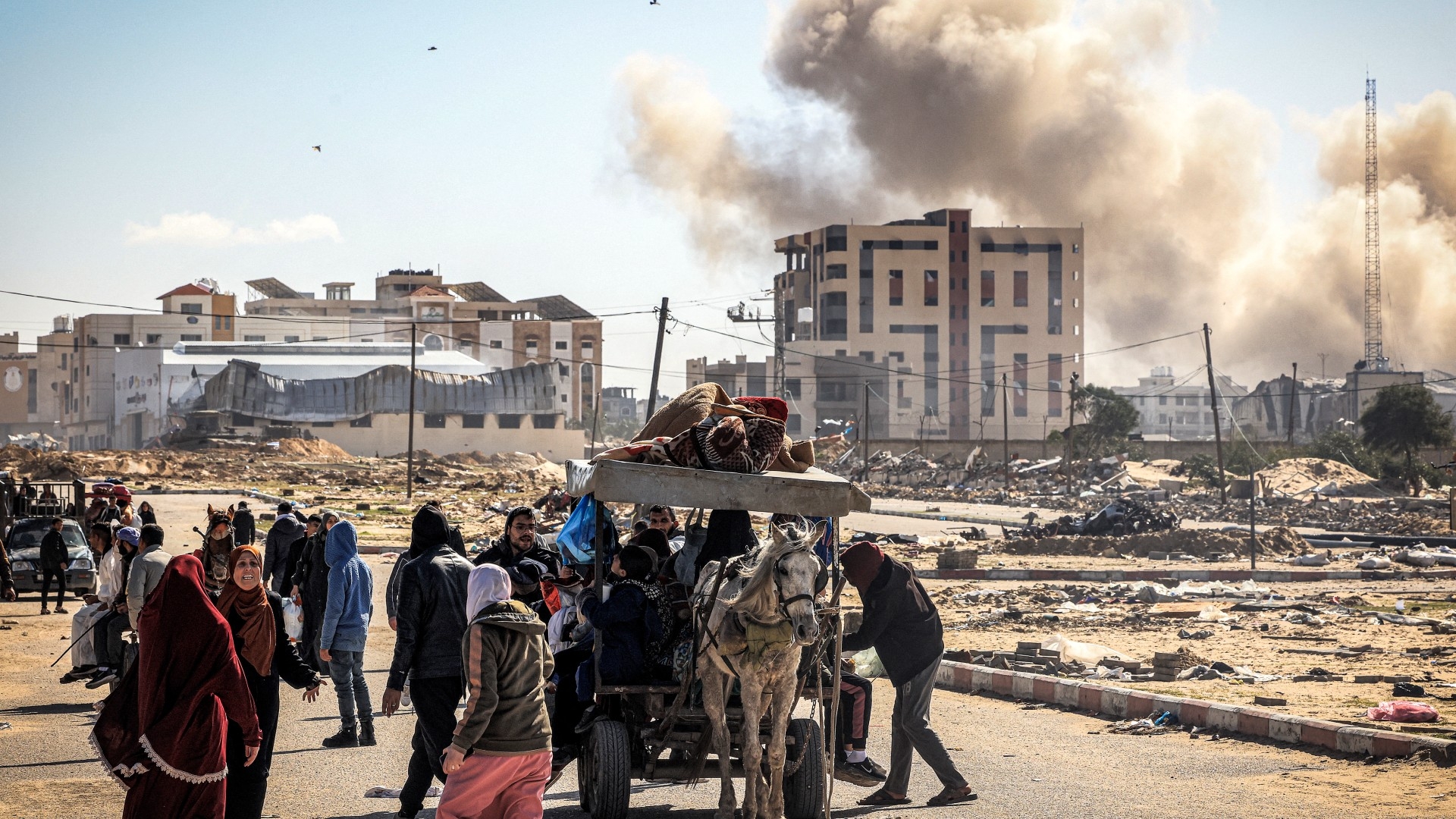
Hamas is studying a proposal drafted in Paris that will offer Palestinians in Gaza six weeks of respite from fighting in exchange for the release of Israelis held captive as well as the release of Palestinian prisoners in Israel.
The head of Hamas's political bureau, Ismail Haniyeh, said in a statement on Tuesday that the group was in the "process of studying it and submitting its response on the basis that the priority is to stop the aggression."
Haniyeh, who is based in Qatar, said Hamas was open to any "serious" initiatives provided they led to a "comprehensive cessation" of hostilities and the complete withdrawal of Israeli forces from Gaza.
His comments came after officials from Qatar, Egypt and the US met Israeli intelligence chiefs in Paris this weekend to discuss the release of some 136 Israelis held captive in Gaza.
The New York Times reported on Sunday that Hamas would release elderly captives, along with women and children in exchange for Palestinian prisoners during an initial period of six weeks.
New MEE newsletter: Jerusalem Dispatch
Sign up to get the latest insights and analysis on Israel-Palestine, alongside Turkey Unpacked and other MEE newsletters
If that was successful, there could be another two phases of swaps, with male Israeli soldiers eventually included.
US Secretary of State Antony Blinken said on Monday that he could not confirm the details of the proposal, but referred to it as "a strong one and a compelling one".
The Israeli prime minister's office called the talks "constructive", but noted that there were "significant gaps which the parties will continue to discuss".
For weeks, Prime Minister Benjamin Netanyahu and his far-right government have vowed to remain in Gaza until Hamas is eliminated.
Speaking from an illegal Israeli settlement in the occupied West Bank on Friday, Netanyahu said: "We will not compromise on anything less than total victory.
"That means eliminating Hamas, returning all of our hostages and ensuring that Gaza will no longer pose a threat to Israel," he added.
However, Hamas political bureau member Mohammad Nazzal told Al Jazeera on Tuesday that an agreement to release the Israeli captives could only be possible with a full Israeli withdrawal from Gaza.
"We told the mediators a permanent ceasefire is our goal, but we can do it in the second or third stages of an agreement. Without an Israeli withdrawal from Gaza, we can’t accept this new proposal," Nazzal said.
Israel's far-right National Security Minister Itamar Ben Gvir threatened on Tuesday to bring down the government if a "reckless" deal was reached with Hamas.
"A reckless deal = the dismantlement of the government," the far-right minister said on X, formerly known as Twitter.
Stolen bodies returned
The reports of negotiations came as 114 Palestinians were killed and 249 were wounded over the past 24 hours, according to the Palestinian health ministry.
That brought the number of Palestinians killed in Gaza by Israeli forces since 7 October to 26,751, the ministry added.
In the besieged enclave, over 100 Palestinian bodies were returned to Gaza for mass burial in the southern city of Rafah on Tuesday.
The bodies were stolen by Israeli forces from various areas in the Gaza Strip and taken back to Israel, the Palestinian news agency Wafa reported.
Some of the bodies being buried again were already decomposed, Wafa reported. Others were unidentified.
Wafa also reported that doctors who had inspected the remains said there were signs that some bodies had missing organs.
West Bank assassinations
In the occupied West Bank, Israeli commandos disguised as medics, patients and other Palestinian civilians raided a hospital in Jenin.
The soldiers killed three people inside Jenin's Ibn Sina hospital. Footage shared online and in Israeli media showed around a dozen Israeli soldiers in the hospital, armed with assault rifles.
The three men killed have been identified as Mohammed Jalamneh, and two brothers, Basil and Mohammed al-Ghazawi.
The raid left parts of the hospital destroyed, with beds upturned and blood stains covering the floor and equipment.
Tawfiq al-Shoubaki, the medical director of the hospital, told Middle East Eye that some of the Israeli commandos were also dressed as nurses and drew their weapons as soon as they entered the hospital.
He added that some of the Israeli forces had entered Basil al-Ghazawi's room despite the fact that he was receiving treatment for wounds he sustained on 25 October, following a missile explosion in the Jenin cemetery.
“No gunshots were heard during their storming of the wounded man’s room. They immediately withdrew after a few minutes, and the hospital staff found the three young men covered in their blood, without any indication that they were alive, and the bullets were concentrated in the head,” he said.
Shoubaki says that the assassinations mark new ways Israel is targeting hospitals and medical staff in Jenin.
The Israeli military has a long history of employing undercover agents in an attempt to infiltrate Palestinian communities.
Middle East Eye delivers independent and unrivalled coverage and analysis of the Middle East, North Africa and beyond. To learn more about republishing this content and the associated fees, please fill out this form. More about MEE can be found here.


